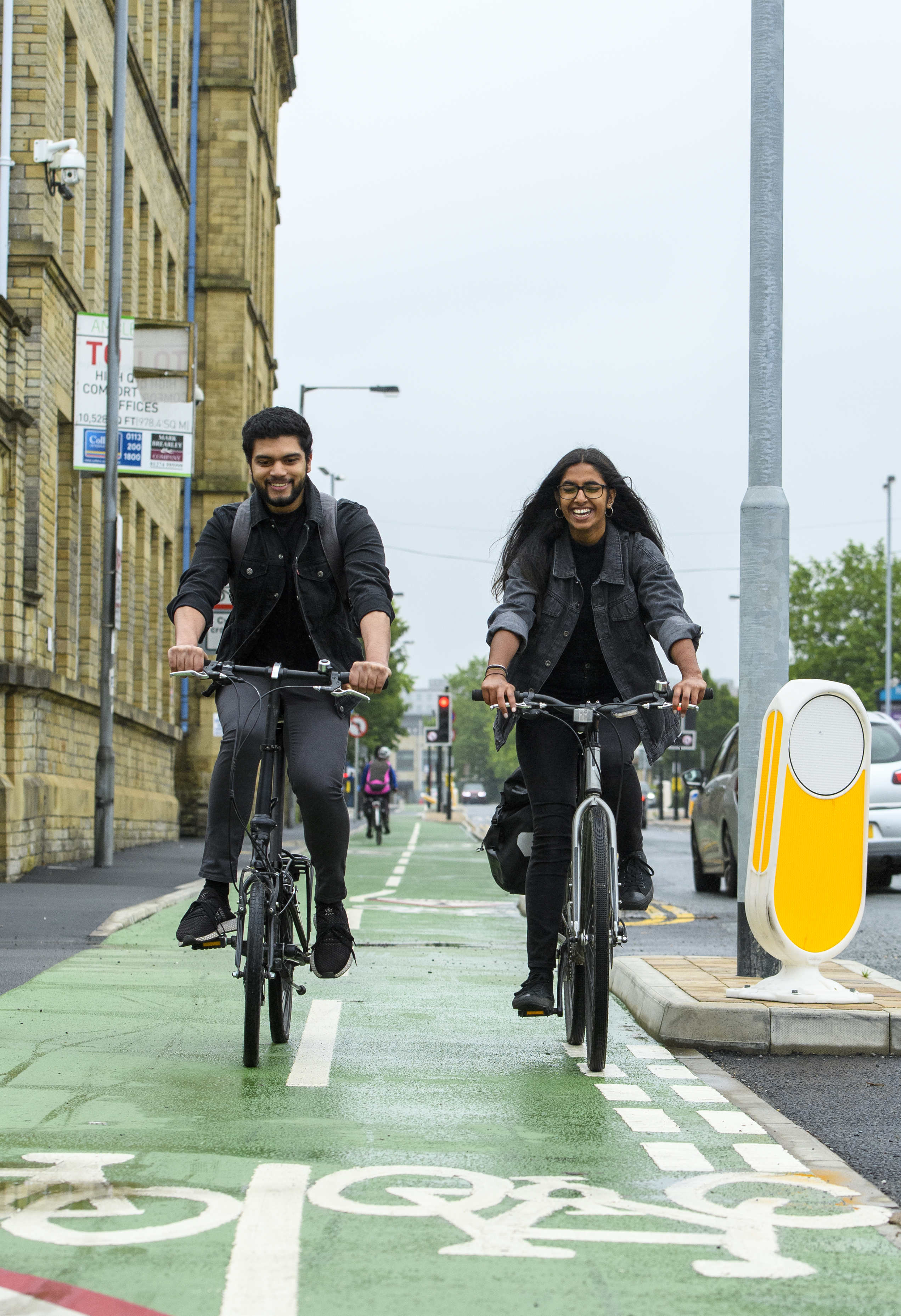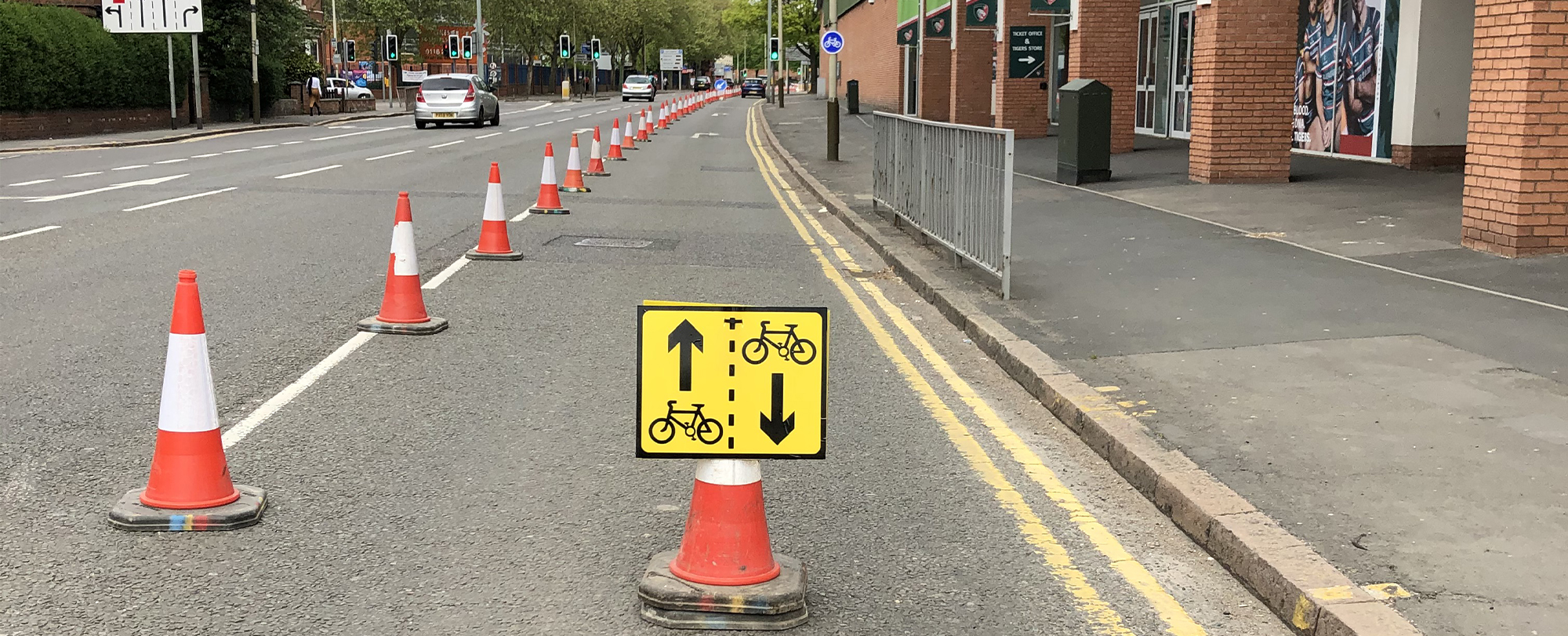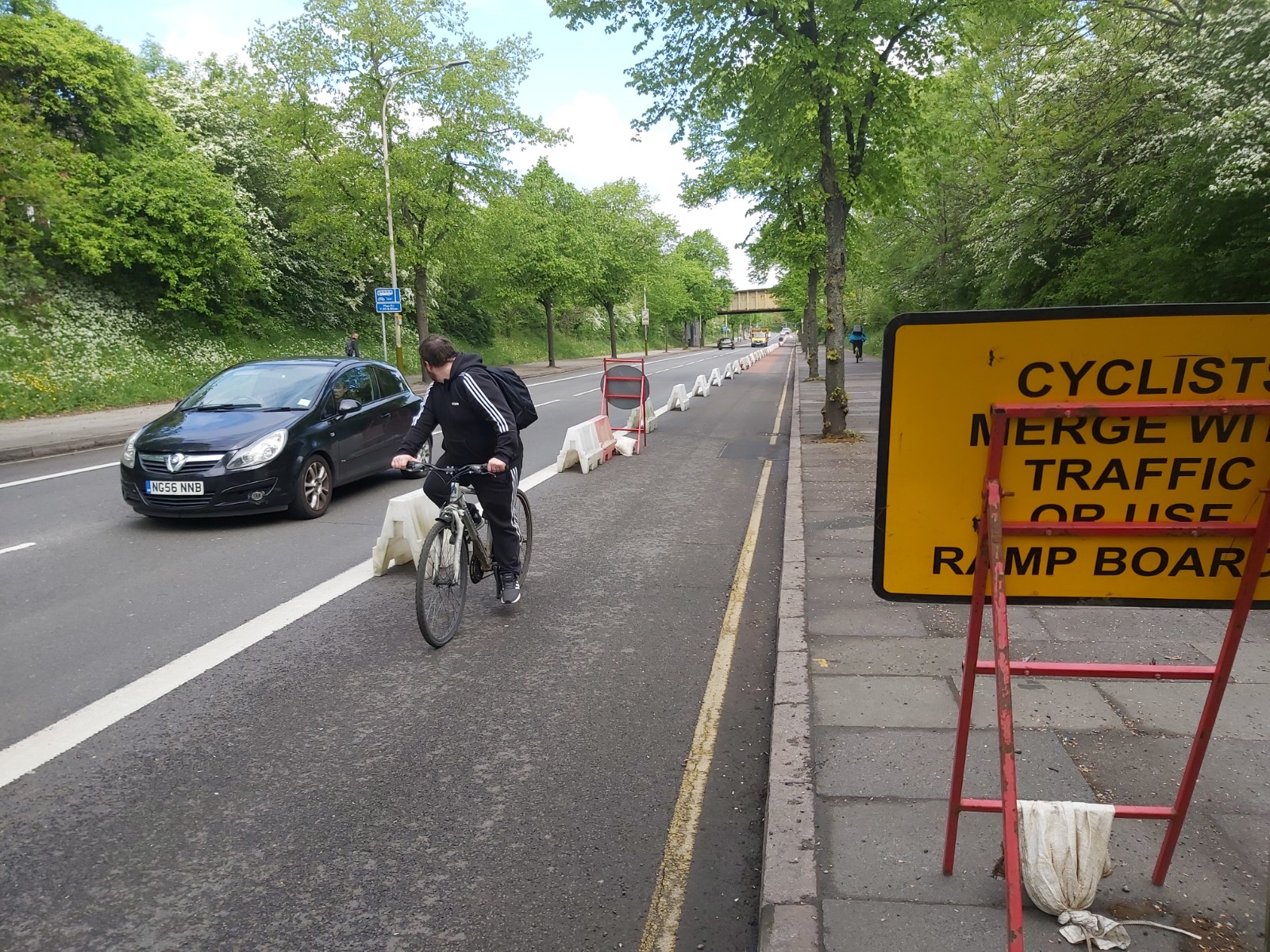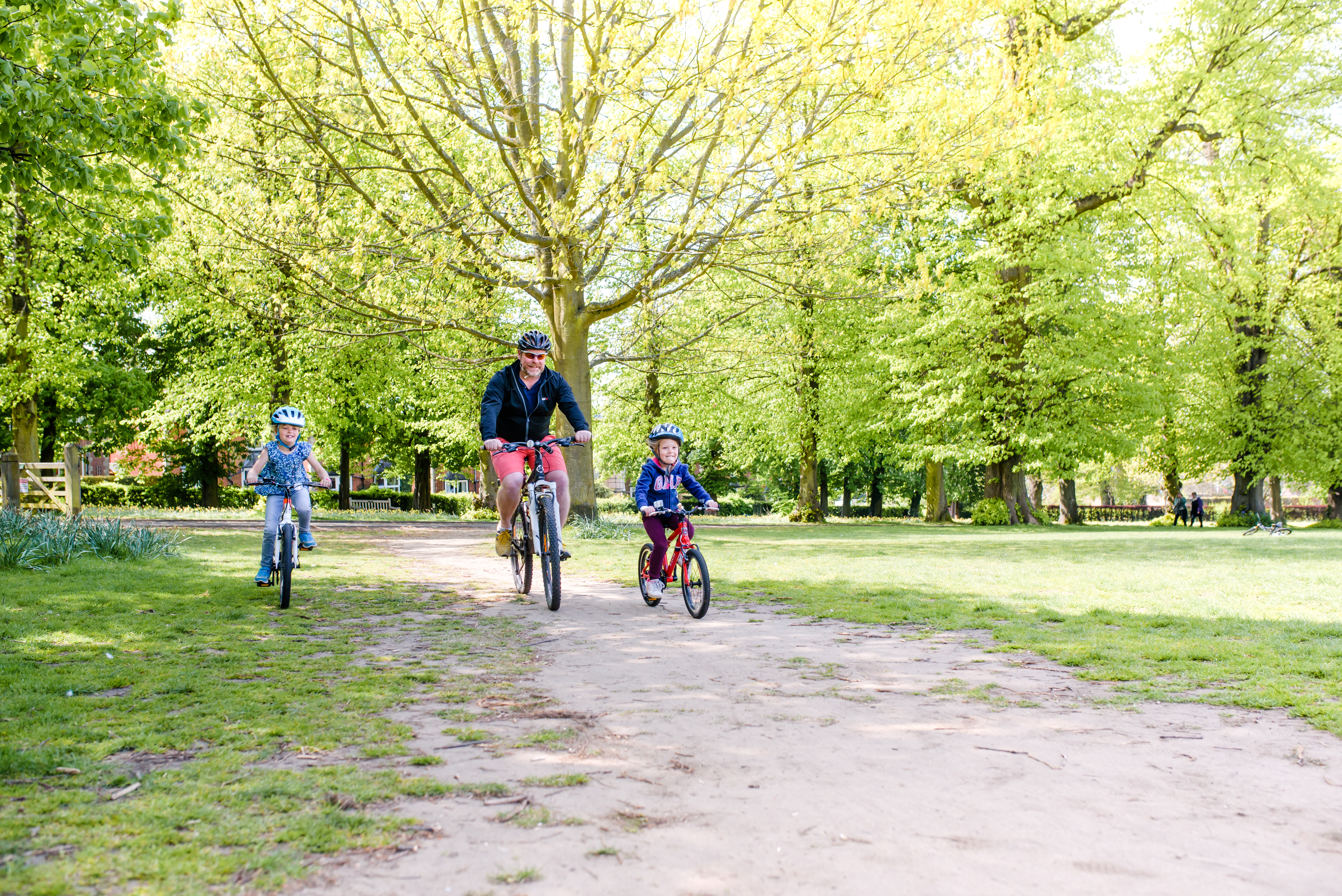Councils urged to seize the initiative over pop-up cycle lanes
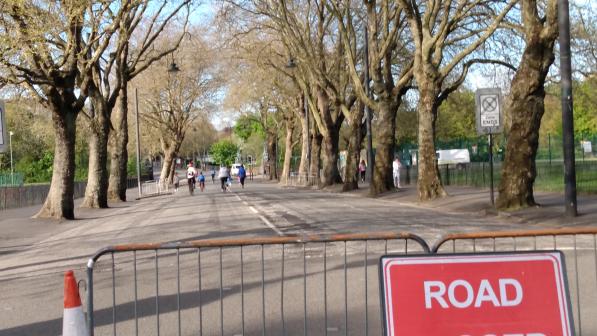
The Government’s plans to boost walking and cycling after the coronavirus lockdown are lifted had been widely reported by the media before the transport secretary even made it to the daily Covid response briefing.
What we didn’t know was the detail.
Now we know he plans to spend £250m on pop-up cycle lanes, wider pavements, safer junctions and cycle and bus-only corridors to, as he described it, ‘get Britain moving again.’ This part of the announcement is very positive news.
The challenge now is to local authorities to get on and spend it well.
People can encourage their own councils to put in temporary infrastructure by taking part in our campaign action.
Cycling UK has invited researchers from Leeds University to extract maps of roads in 10 major English cities, showing the roads which appear to be wide enough to have additional cycle lanes, and which have the greatest potential for increased cycle use. We hope the Government will support the creation of similar mapping for the whole of England.
Encouragingly, Mr Shapps said that this £250m was only the first stage of a £2bn investment plan, drawing from the £5bn funding announced in February for buses and cycling. He also promised an updated ‘Cycling and Walking Investment Strategy’ for England, to be launched by the Prime Minister in the summer.
This would be accompanied by new standards for the design of cycle-friendly roads, streets and cycle-specific facilities.
These standards are long overdue and cannot come soon enough. The challenge then will be to ensure they are consistently followed in all road and traffic schemes, new developments, and planned maintenance works. Crucially, they also need to be followed by Highways England and HS2.
Admittedly Mr Shapps’s announcement of £2bn is still only a fraction of the £6bn which his department’s research says is the minimum needed to reach its targets to double cycling trips and increase walking by 2025. It therefore remains to be seen whether the department can secure enough additional funding, including match-funding from local sources, to achieve its targets.
Other measures he promised included a cycling and walking commissioner; moves to get GPs to prescribe cycling and exercise; vouchers for cycle repairs to encourage people to dig out their old bikes from the shed, and more people will be encouraged to take part in the Cycle to Work scheme.

Roger Geffen, Cycling UK’s Policy Director, said the priority was ensuring councils acted with haste to implement to install temporary cycling infrastructure across England.
Councils now need to seize the initiative and introduce new cycle provision while our roads are relatively empty, to make sure we keep our streets clean and safe for children to return to school, and to help the wider economy get moving again in a cleaner, healthier way.
Roger Geffen, Policy Director
He said: “Councils now need to seize the initiative and introduce new cycle provision while our roads are relatively empty, to make sure we keep our streets clean and safe for children to return to school, and to help the wider economy get moving again in a cleaner, healthier way.
“We hope the Government also plans to support the provision of cycle confidence training for adults and young people alike, along with projects to support people taking up cycling in schools, workplaces and community settings.
“We also look forward to further details of the Government’s longer-term plans to double cycling trips by 2025 and to make it a normal choice for day-to-day journeys as part of a healthy, low-carbon future.”
In his press briefing, Mr Shapps said: “During this crisis, millions of people have discovered cycling - whether for exercise or as a means of safe, socially-distanced transport. While there is no change to the ‘stay at home’ message today, when the country does get back to work we need those people to stay on their bikes and be joined by many more.
“Otherwise, with public transport’s capacity severely restricted at this time, our trains and buses could become overcrowded and our roads gridlocked – holding up emergency services, critical workers and vital supplies.
“We know cars will continue to remain vital for many, but as we look to the future we must build a better country with greener travel habits, cleaner air and healthier communities.”
Read the Government's announcement in full

